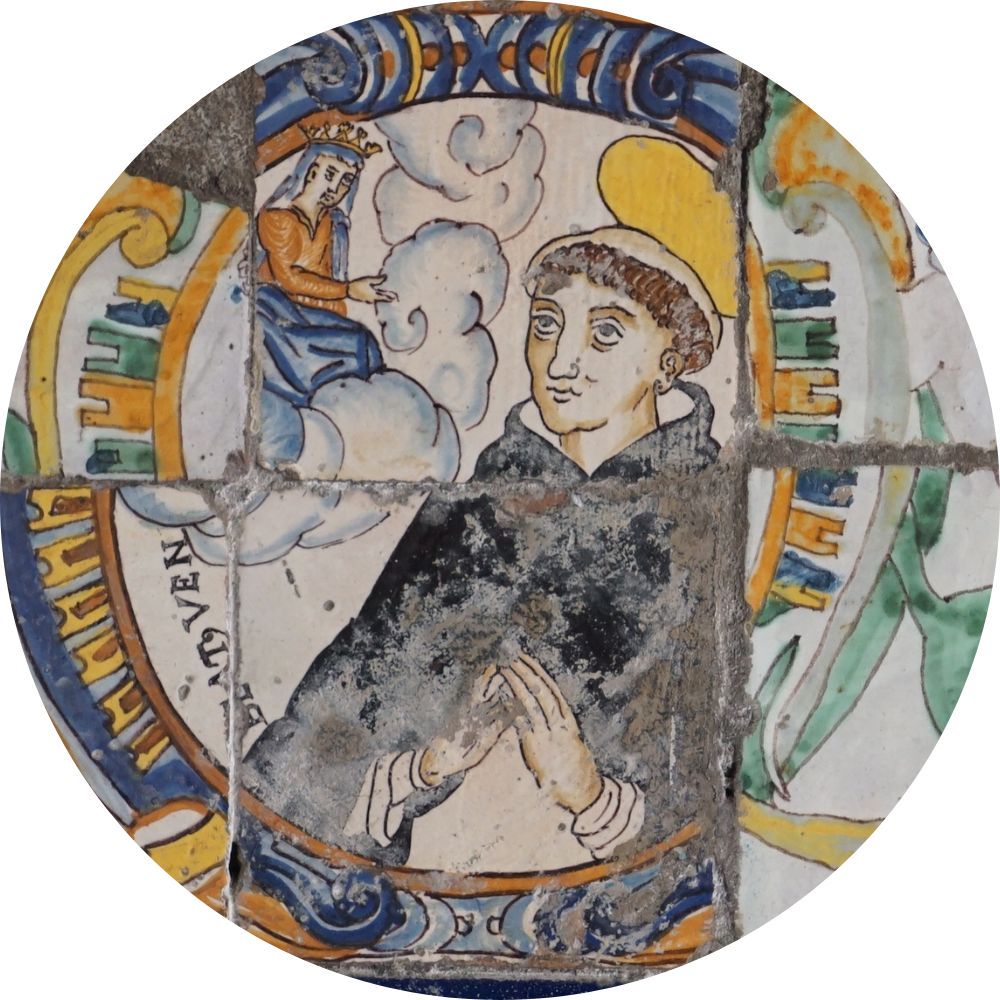Venturine of Bergamo
Venturine of Bergamo, priest
(1304-1346)
Venturino da Bergamo (or Venturinus de Lemen, aka Venturino de Apibus) was born on April 9, 1304, in Bergamo. His father was Lorenzo Domenico degli Artifoni di Almenno, who later changed his patronym to de Apibus di Caracosa (an illustrious, although not very well known a family). His father was a scholar who worked for many years in the service of Cardinal. Longo founded a school of grammar and logic, where he himself taught for many years. He had three siblings: Jacopo Domenico, who was on friendly terms with Petrarca, Pierina and Caterina, who became a nun and joined the Santa Marta convent in Bergamo, founded by her brother. Venturine himself entered the Dominican order of Santo Stefano in his hometown at the age of 14. He studied in Pavia, Como, Bergamo and finally Genoa, where he was ordained a priest in 1328. There he remained, serving as novice magister for a year and then as a preacher.
Convinced of the deep need for a radical reform of the morals of the Order and society as a whole, he actually decided to abandon the "pride" that had pushed him to study and begin a life of penance, witness to evangelical values and scrupulous adherence to the Dominican rule. This, given the deeply enthusiastic temperament and his consistent behavior, aroused suspicion among his confreres and superiors.
In 1330, he enrolled in the Societas peregrinantium propter Christum inter gentes, created by the Order for missions in the East, after which he left Genoa for Venice, from where he hoped to go on missions. However, he had to renounce his intentions, as too many brothers came forward. So he was sent to a monastery in Chioggi, and then to a monastery in Vicenza and Bologna. His preaching became increasingly popular, to the point that people who gathered in large numbers for his sermons were often forced to listen to him in the open air.
In February 1335, Venturine planned to make a penitential pilgrimage to Rome with some thirty thousand of his converts, but his goal was misunderstood, and Pope Benedict XII, then residing in Avignon, thought Venturine wanted to become pope. As a result of the Pope's complaints to the religious authorities, the London Chapter was convened to condemn such pilgrimages. However, the pope's letters and instructions did not reach Venturine himself, who arrived in Rome on March 21, 1335. After twelve days, Venturine left Rome and went to the pope in Avignon to put himself at the pope's service with a view to the crusade. In June, he asked for an audience, but instead was captured and thrown in prison for eight years. He was restored to favor by Pope Clement VI, who appointed him to preach the crusade against the Turks. During its course, he died. Death found him on March 28, 1346, in Smyrna.
He left behind some writings, which were not published until 1904. These were mainly letters and treatises on spiritual life.
All traces of his grave have disappeared: Smyrna was devastated by the Tartars in 1399 and again in 1424. However, the cilice he used to whip himself was preserved.
Interestingly, Protestants saw him as the city's German mystic and the forerunner of the Reformation. He enjoyed veneration in the Dominican order, with his liturgical memory falling on March 28, the anniversary of his death. Efforts were also made to elevate him to the altars, but there was never any official approval of his veneration by the Church.
A painting with his image is preserved, for example, in the sacristy of the Dominican church in Bergamo. He is depicted on it wearing a Dominican habit in an act of mystical concentration.
In the Santo Domingo Monastery in Lima, he is shown with the Mother of God. It is difficult to say to which situation from his life the show refers. However, it cannot be ruled out that we are not really dealing with Wenturin of Bergamo in this situation, but some other monk. In fact, it is excluded that the proposed here Wenturin not the letter "tuven" may refer to someone else. Besides, it is worth noting that the ceramic fragment added here does not match the whole and may suggest that it came from another medallion.
Bibliography:
- Clementi G., Il beato Venturino da Bergamo, Roma 1904.
- Clementi G., Un santo Patriota. Il b. Venturino da Bergamo dell'Ordine de' predicatori (1304-1346) Storia e documenti, Bergamo 1909
- Altaner B., Venturino von Bergamo O. Pr. 1304-1346. Eine Biographie, Breslau 1911.
- Sorbelli A., La Legenda del b. Venturino da Bergamo, Bologna 1925.
- L’epistolario del beato Venturino da Bergamo, Bergamo 1958.
- Corsi D., La « crociata » di Venturino da Bergamo nella crisi spirituale di metà Trecento, „Archivio Storico Italiano”, 147 (1989), issue 4 (542), pp. 697-747.

